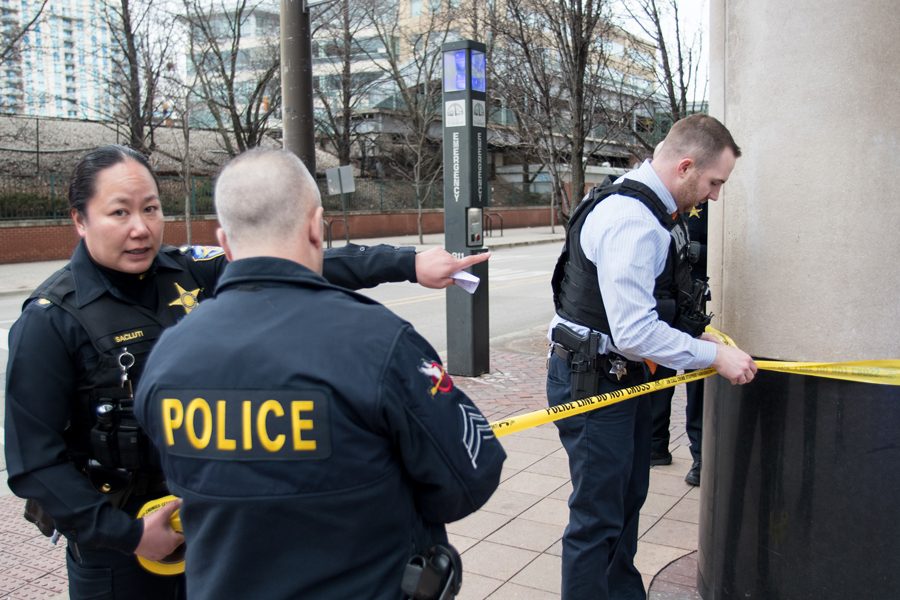Committee provides first suggestions to improve police complaint process
Daily file photo by Colin Boyle
The Citizen Police Complaint Assessment Committee discusses revisions to the current complaint process. Committee members suggested adding mediation to the process.
February 8, 2018
The Citizen Police Complaint Assessment Committee provided its first suggestions to improve the police complaint form at a meeting Wednesday, but is “not close to making a firm recommendation,” committee chair Matthew Mitchell said.
The committee — created last year to examine the Evanston Police Department’s complaint process — was expected to present recommendations on how to improve the process to the Human Services Committee in May. However, the group has decided to extend their work until October.
“We’re making substantive progress,” Mitchell said. “We’re fermenting the groundwork.”
Part of the process includes a survey that will be distributed Monday at local churches and city buildings. The survey, available online in English and Spanish, aims to gauge the public’s familiarity and satisfaction with the current complaint process, and will be available through March 9.
The number of complaints filed has decreased dramatically in recent years, Mitchell said. There were 77 complaints filed in 2011, but only 10 in 2017. He said the survey will “get a community impression of the current process” which may help answer the question of why this decrease happened.
Committee member Jeff Parker also provided suggestions for improving the form on which complaints are filed. He said he would like the form to be “more user friendly” and have “additional demographic fields” to track where the complaints are coming from.
Parker said the demographic data would help the city address systemic issues.
One of the suggestions committee members proposed at the meeting was to incorporate mediation in the complaint process. A third party would mediate between the officer and complainant as they discussed the interaction that brought about the complaint.
Last month a complaint was filed online from Gregory Hall, a black doctor who was forcefully handcuffed in a case of mistaken identity. Hall has since met with the Office of Professional Standards and reviewed the video of his detainment that was captured on police body worn cameras, Evanston police Cmdr. Ryan Glew told The Daily in January.
Joi Russell, who is the director of strategic partnerships at the Moran Center — an Evanston organization that works to promote youth advocacy — said it would be “healing” for Hall to have a conversation with the officers who handcuffed him. She also encouraged mediation to become a mandatory part of the complaint process.
“Those officers and that doctor need to … have a conversation about what they were thinking when they handcuffed him, for him to share with those two officers what it felt like to not be able to have a voice and not heard at that moment,” Russell said. “There’s something to be said about the power and the impact of the victim and the offender coming together.”
Mitchell said officers could be incentivized to participate in the process with rewards like the complaint disappearing from their record if it is resolved during mediation. The complaint would not appear on their personnel file or impact their prospects for promotion.
Mitchell added that he spoke with Evanston police Chief Richard Eddington last month for the first time since the committee began meeting in October. He said Eddington was concerned about the experience of a potential third party investigator.
“This independent body really has to be very professional,” Russell agreed. “It has to be people who obviously, most importantly, understand what the police models look like, the reporting structures, all of that, but also the humanity in it.”
Email: nikkibaim2020@u.northwestern.edu
Twitter: @nikkibaim22


